2023 MS Seminar Series Speakers
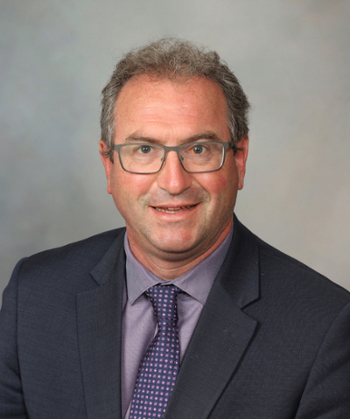
Sean Pittock, MD, Mayo Clinic
May 2023
"NMOSD: A 20-year journey from biomarker discovery to near cure"
Dr. Pittock is a Professor of Neurology, Director of the Neuroimmunology Laboratory (NIL) and the
Marilyn A. Park and Moon S. Park, M.D., Director of the Center for MS and Autoimmune
Neurology at the Mayo Clinic. His expertise is in the laboratory and clinic-based diagnosis and
management of immune mediated neurological disorders. He has published more than 450 peer
reviewed papers in the field of Autoimmune Neurology. His research is translational and is focused
on 1) the identification of novel biomarkers of autoimmune neurological diseases (currently in
clinical practice-AQP4, GFAP, MAP1B-IgG, Kelch11); 2) the clinical application of laboratorybased
tests in diagnosis and outcome prediction (e.g. the first live cell flow cytometry-based assay
for AQP4-IgG detection; 3) leading Phase 2 and 3 therapeutic trials. His main focus is on
“biomarker to near cure” through elucidation of immunopathologic mechanism and identification of
novel therapeutic targets.
- Consultant, Department of Neurology, Mayo Clinic
- Professor of Neurology, Mayo Clinic
- Director, Mayo Clinic Center for Multiple Sclerosis and Autoimmune Neurology
- Principal Investigator, Mayo Neuroimmunology Research Laboratory
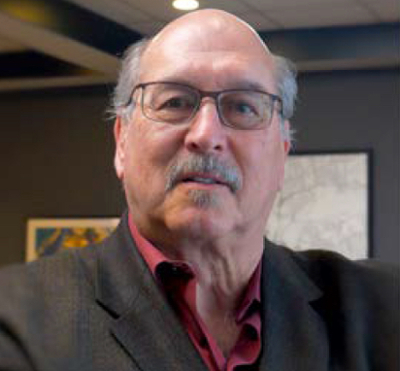
Mark Freedman, HBSc, MSc, MD, University of Ottawa
April 2023
"When is MS not MS? (When it is Devic's)"
Mark Freedman is Professor of Medicine (Neurology) at the University of Ottawa, Senior Scientist at the Ottawa Hospital Research Institute and Director of the Multiple Sclerosis Research Unit at the Ottawa Hospital-General Campus. His extensive research includes molecular neurochemistry, cellular immunology, and clinical studies in MS. His basic science interest concerns immune mechanisms of damage in MS, with a particular interest in the role of the innate immune system such as gammadelta T-cells. His main clinical interests are cell-based therapies for MS. He was the lead investigator of the Canadian Bone Marrow Transplant Study in MS and he co-headed an international study of mesenchymal stem cells for the treatment of MS. He is the current President of ACTRIMS.
- Senior Scientist, Neuroscience Program, Ottawa Hospital Research Institute
- Professor of Medicine, Neurology, University of Ottawa
- Director, Multiple Sclerosis Research Unit, Neurology, Ottawa Hospital-General Campus
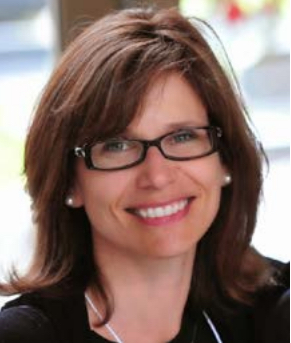
Jacqueline Quandt, PhD, University of British Columbia
February 2023
"Targeting inflammatory and neuroprotective pathways to limit pathology in models of multiple sclerosis" (APP Seminar Series)
"Making progress: Modeling progression in MS using an Nr1h3 variant identified in families with primary progressive MS" (Grand Rounds)
Dr. Quandt is an Assistant Professor in the Department of Pathology & Laboratory Medicine and the Centre for Brain Health at the University of British Columbia. She is a researcher and educator in addition to being the Associate Director of the UBC MS Research Group. She completed a BSc in Microbiology & Immunology and a PhD in Neuropathology (UBC) studying immune cell recruitment at the level of the blood-brain barrier (BBB). Dr. Quandt completed post-doctoral training at the National Institutes of Health in Bethesda, MD characterizing the contributions of autoreactive T cells and disease associated HLA to disease in humanized models. She later led the Animal Models Unit where her research focused on novel therapeutics applications to impart immunological tolerance in MS and stroke. Her laboratory at UBC continues to focus on the relative contributions of inflammatory cells and mediators to disease development in MS and other inflammatory and neurodegenerative disorders.
- Assistant Professor, Department of Pathology and Laboratory Medicine, Faculty of Medicine, UBC
- Associate Director, UBC Hospital MS Research Program
- Member, Djavad Mowafaghian Centre for Brain Health
2020 MS Seminar Series Speakers
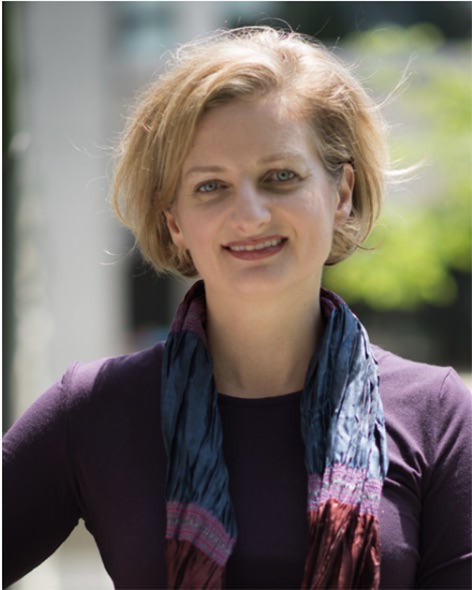
Jennifer Gommerman PhD, University of Toronto
March 2020
Jen received her Ph.D. (Immunology) at the University of Toronto in 1998. She went on to do a post-doctoral fellowship at Harvard Medical School studying the complement pathway and then joined Biogen Inc. as a Staff Scientist in 2000. During her tenure at Biogen, she became interested in B cells, Multiple Sclerosis and the TNF superfamily of molecules. After 3 years in Industry, she returned to Academia as an Assistant Professor (Immunology) at the University of Toronto in 2003. In 2014 she assumed the role of Graduate Coordinator and in this role she spearheaded a new Applied MSc program in Immunology.
- Professor of Immunology
- Canada Research Chair in Tissue Specific Immunity
- Associate Chair, Graduate Studies, Dept. of Immunology
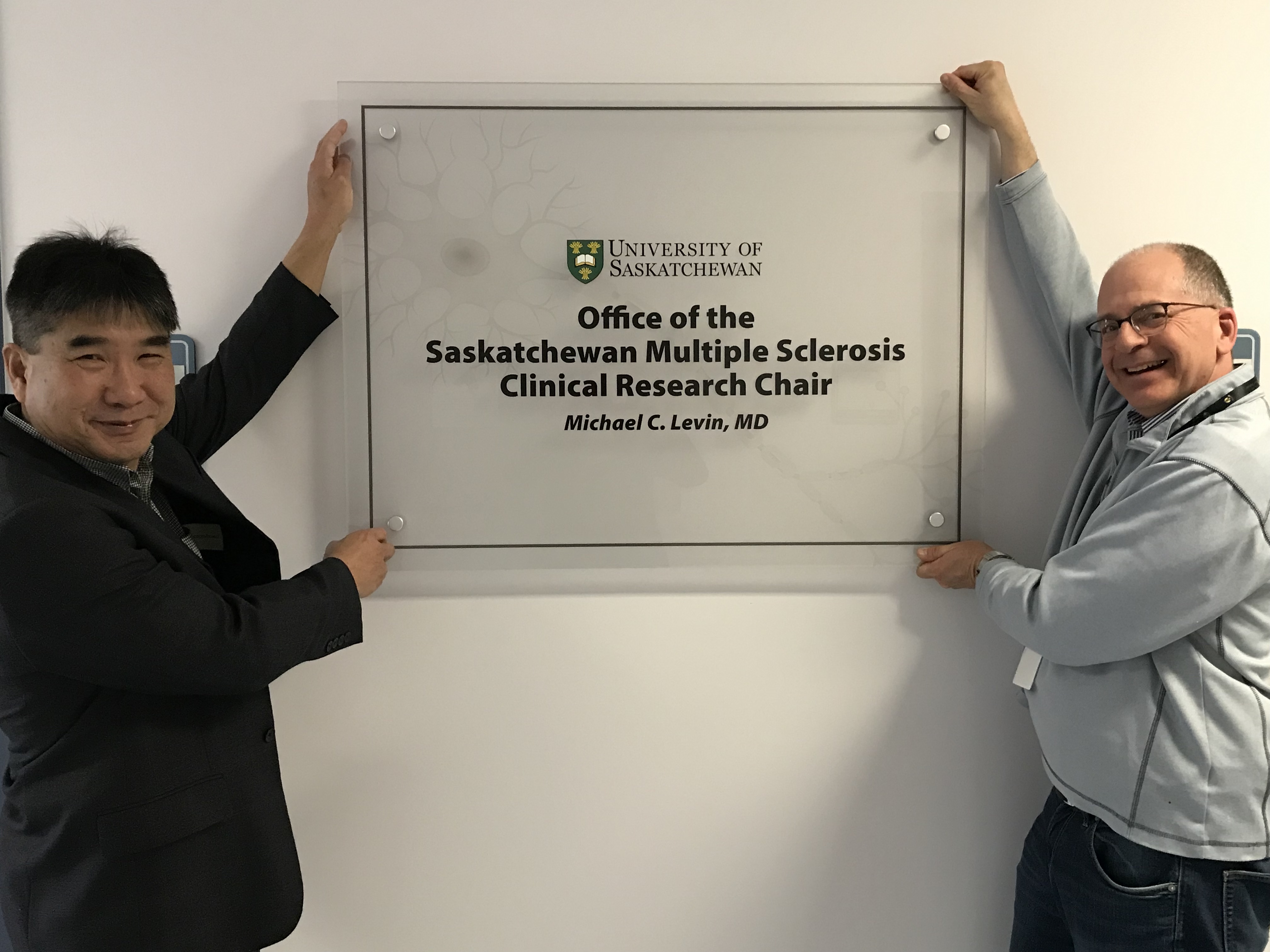
V. Wee Yong PhD, University of Calgary
January 2020
Dr. V. Wee Yong is a Professor at the University of Calgary, Canada, and the Canada Research Chair in Neuroimmunology. He co-directs the Multiple Sclerosis (MS) NeuroTeam of the Hotchkiss Brain Institute at the University of Calgary, providing the basic science leadership, and he directs the provincial Alberta MS Network. Dr. Yong's research interests lie in the area of neuroimmunology, neuroprotection and CNS regeneration, and his projects are guided by MS, spinal cord injury and brain tumors. Dr. Yong has published 280 peer-reviewed manuscripts and his research has been translated into Phase III clinical trials in MS and spinal cord injury. His work has been cited over 17,500 times by other authors (web of science; h-index of 75). Dr. Yong is a past chair of the Medical Advisory Committee of the MS Society of Canada; this and other volunteer activities resulted in him receiving the Queen's Golden Jubilee Year Medallion. Dr. Yong is on the editorial board of 7 international journals; he is the Honorary Editor-in-Chief of the journal Neuroimmunology and Neuroinflammation. He has been the President of the International Society of Neuroimmunology (2014-2016). Dr. Yong is an elected fellow of both the Canadian Academy of Health Sciences and the Royal Society of Canada, which represent top honors for those working in the medical and academic sciences. Dr. Yong is the 2017 Allyn Taylor International Prize in Medicine winner.
- Professor of Clinical Neurosciences
- Member, Hotchkiss Brain Institute
2019 MS Seminar Series Speakers
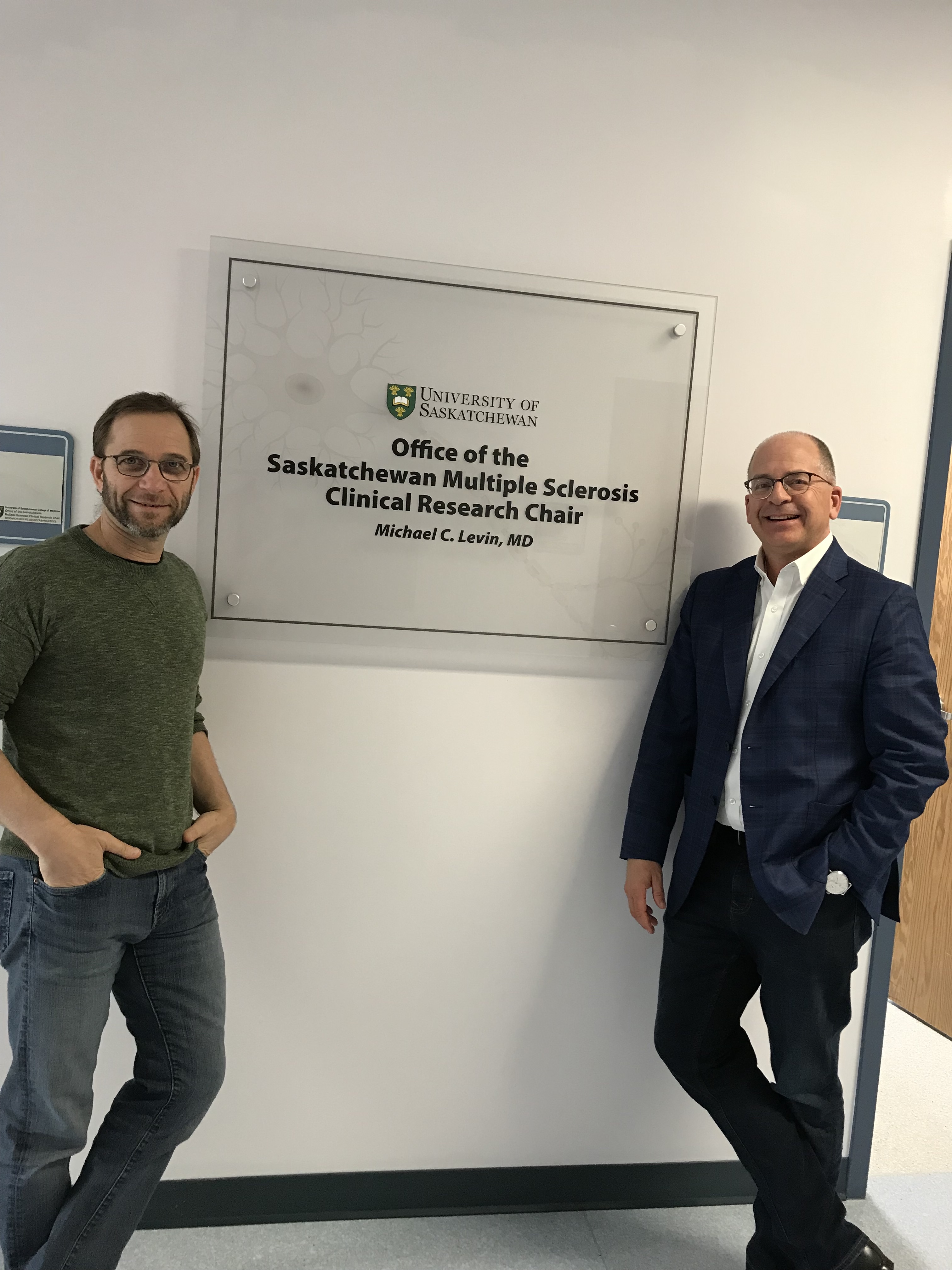
September 2019
Dr. Bar-Or is the Melissa and Paul Anderson Professor of Neurology and founder and Director of the Centre for Neuroinflammation and Experimental Therapeutics as well as Chief of the Division of Multiple Sclerosis at the University of Pennsylvania. He was previously Professor of Neurology and Neurosurgery at the Montreal Neurological Institute and Hospital, McGill University. Dr. Bar-Or’s clinical focus is MS and related disorders in both adults and children. In his lab, the major research themes are directed at understanding basic principles of immune regulation and immune-neural interaction, and their contribution to inflammation, injury and repair of the human central nervous system. Particular areas of focus have involved elucidation of antibody-independent mechanisms by which human B cells contribute to modulation of T cell and myeloid cell subsets and how these contribute to MS immune pathophysiology; studies of immune reconstitution biology; and mechanisms of neuro-immune interaction.
- Director, Center for Neuroinflammation and Neurotherapeutics
- Chief, Multiple Sclerosis Division
- Melissa and Paul Anderson President's Distinguished Professor
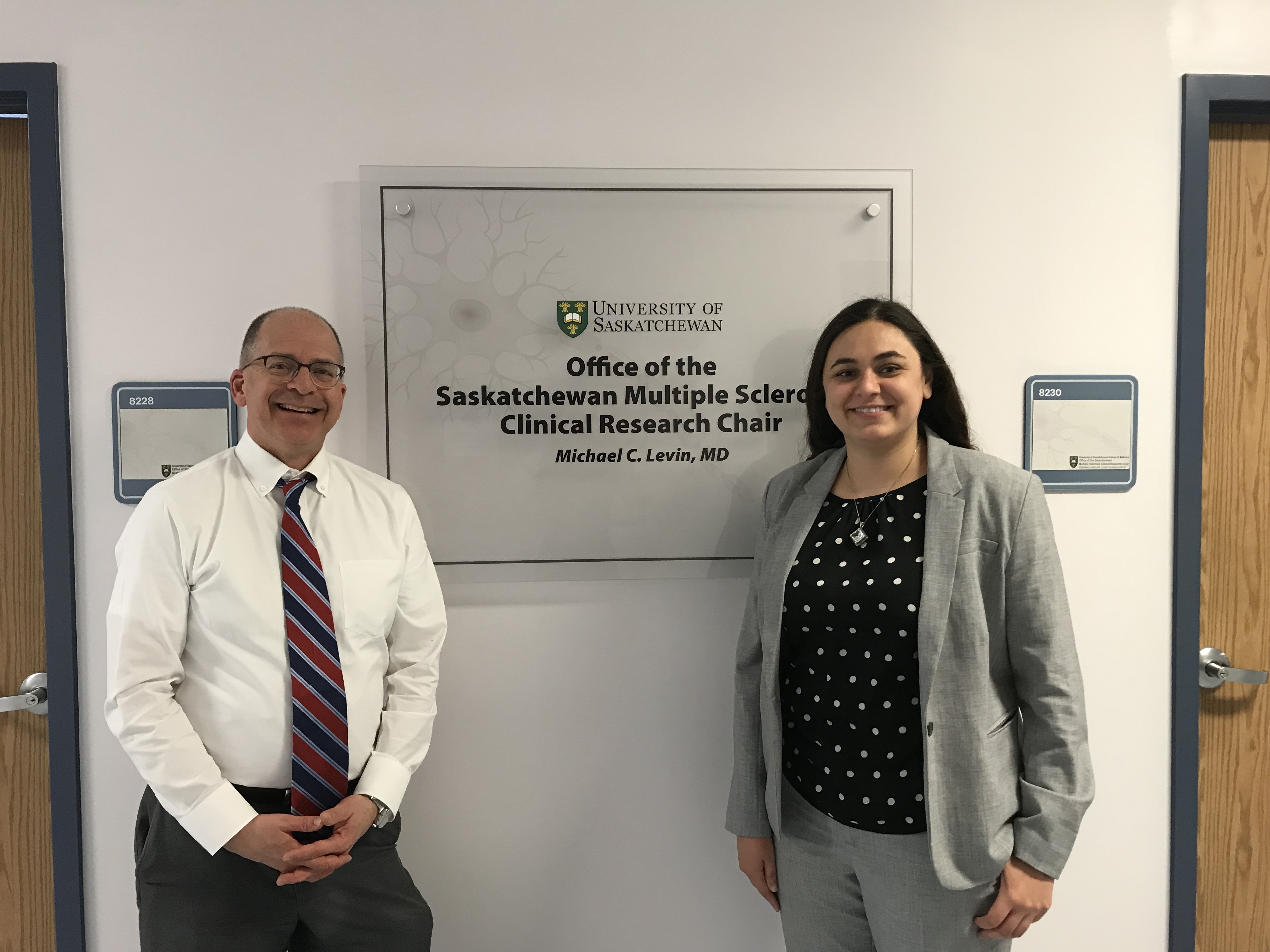
Farrah Mateen MD, PhD, Harvard Medical School
May 2019
Dr. Mateen's clinical practice is dedicated to multiple sclerosis and neuromyelitis optica where she enjoys seeing patients with diagnostically and therapeutically complex conditions. She leads a clinical trial funded by the National MS Society on electronic pill bottle monitoring in multiple sclerosis and a safety study on the longterm impact of the new disease modifying therapies in all types of multiple sclerosis. She performs research on MS, NMO, and related demyelinating diseases including radiologically isolated syndrome.
Dr. Mateen is principal investigator of the Guinea Epilepsy Project, a multi-country study of a smartphone-based electroencephalogram (EEG) and the MAMBO trial (Measuring Ambulation Motor and Behavioral Outcomes with post-stroke fluoxetine) in Tanzania through the of the National Institutes of Health and others. She has also had a sustained interest in neurological disorders in refugees and asylum seekers. Her work includes collaborations throughout Africa, Asia, the Middle East, and Central America.
- Associate Professor, Harvard Medical School
- Director, Global Health, Department of Neurology
- Associate Director, Multiple Sclerosis & Neuromyelitis Optica Unit
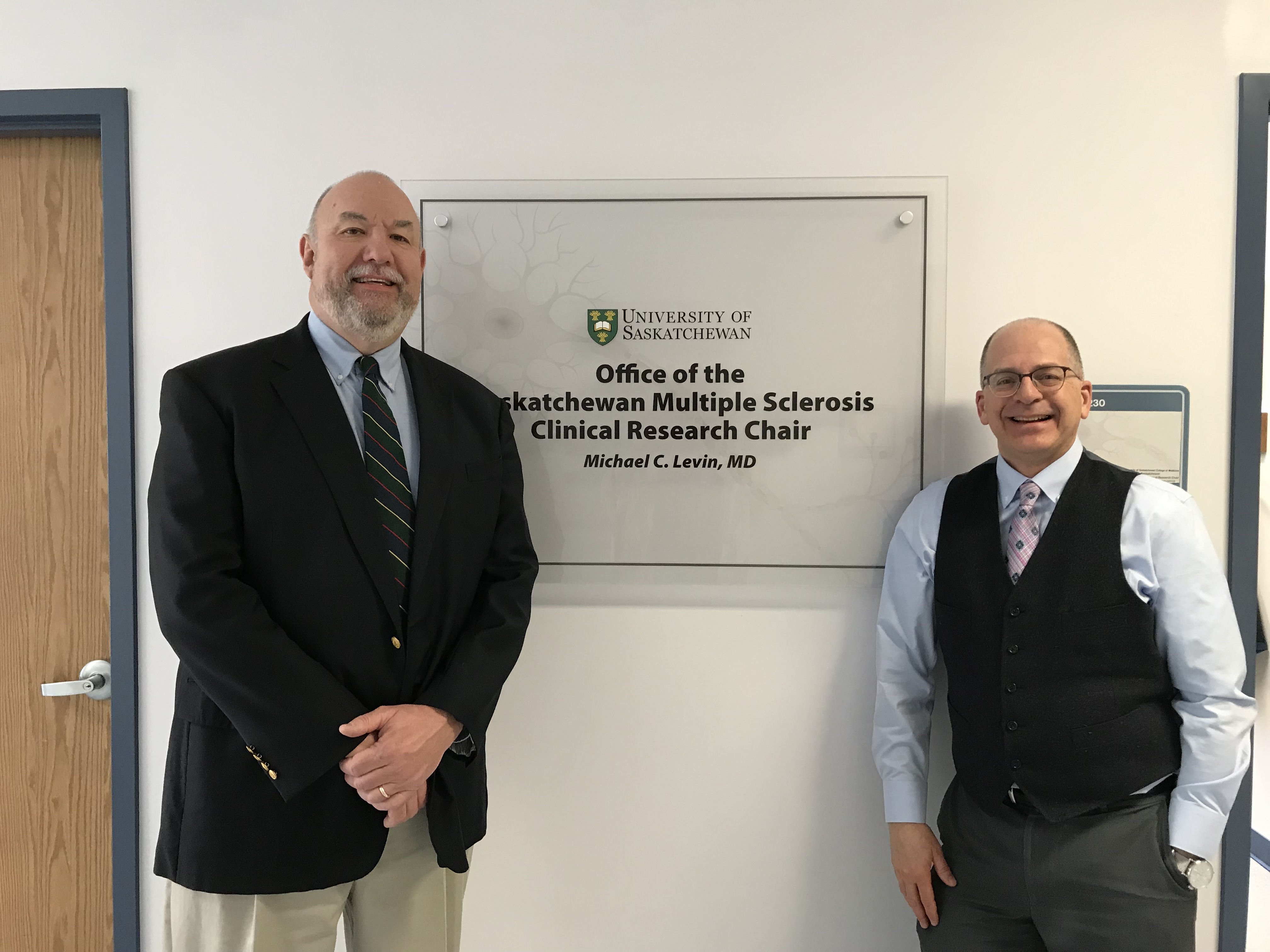
Michael Racke MD, President of the Consortium of MS Centers
March 2019
An international leader in neurological sciences, Dr. Racke is a distinguished scholar known for his research in immunology and multiple sclerosis. Dr. Racke serves on many advisory committees and currently is the chair of the Clinical Neuroimmunology and Brain Tumors (CNBT) NIH Study Section.
He has received the prestigious Harry Weaver Neuroscience Scholarship from the National Multiple Sclerosis Society and the Young Investigator in Multiple Sclerosis Award from the American Academy of Neurology Education and Research Foundation.
Board certified in Neurology, Dr. Racke’s clinical and research interests are neuroimmunology and multiple sclerosis, specifically studying disease pathogenesis and developing novel therapies.
2018 MS Seminar Series Speakers
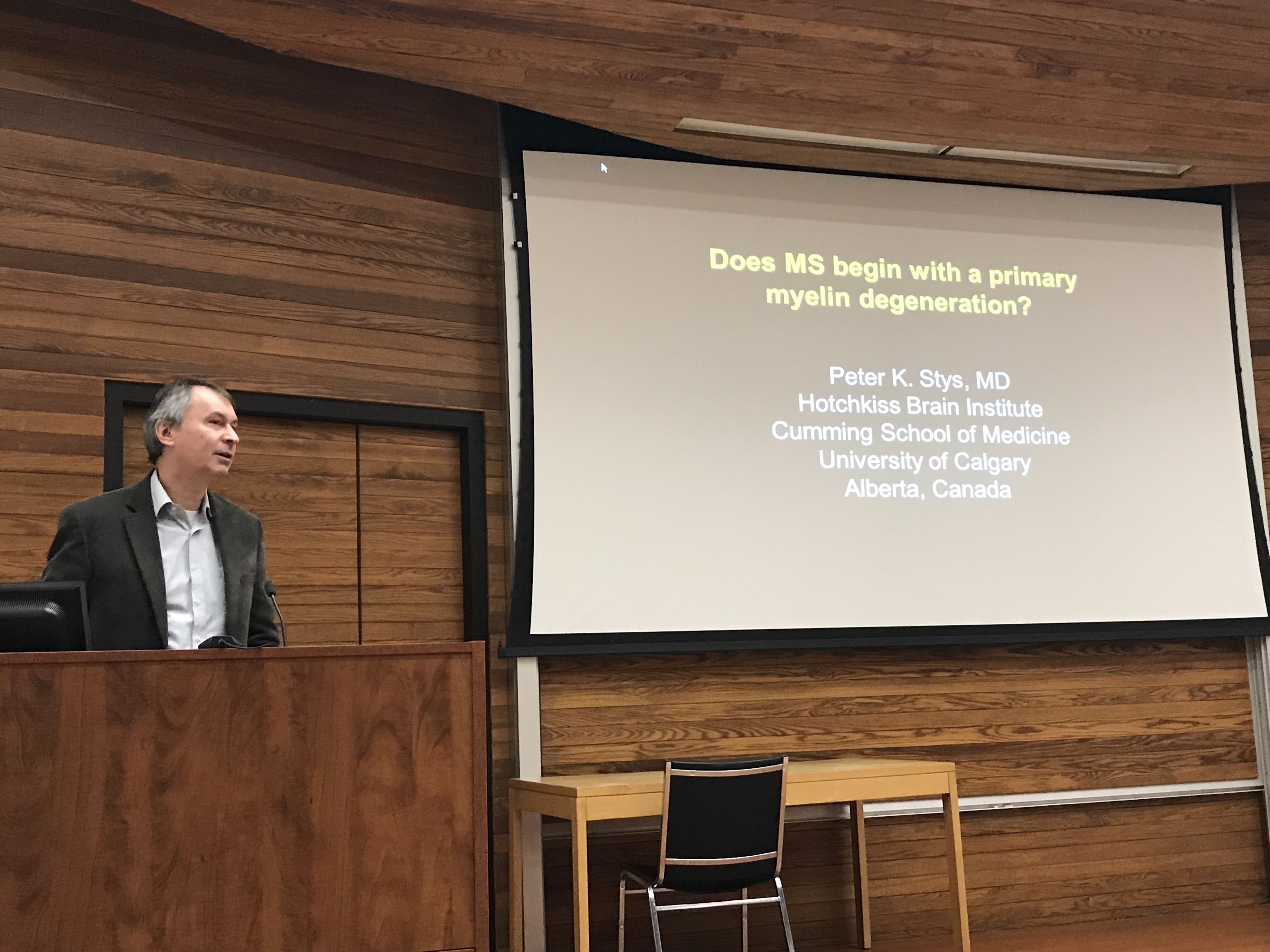
Peter Stys MD, University of Calgary
November 2018
Dr. Stys is a neurologist/basic neuroscientist and a leader in the study of pathophysiological mechanisms of white matter injury. He completed his neurology training at the University of Toronto then a post-doctoral fellowship at Yale University. His lab has extensive expertise in electrophysiological recording methods in myelinated axons, as well as advanced imaging techniques including spectral fluorescence microscopy.
- Professor, Clinical Neurosciences
- Member, Hotchkiss Brain Institute
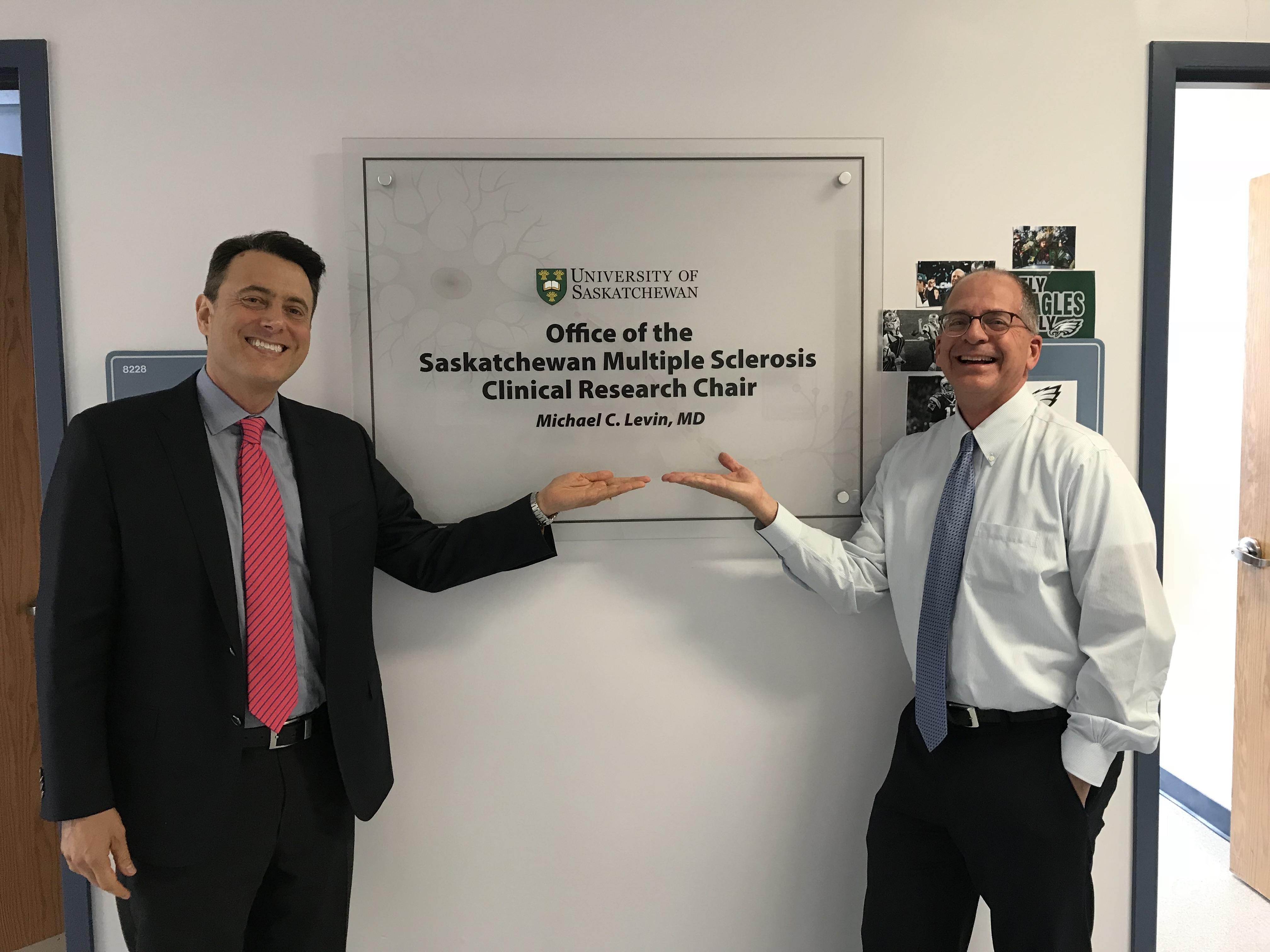
Bejamin Segal MD, The Ohio State University
September 2018
Dr. Segal began his academic career at the National Institutes of Health (NIH), where he conducted innovative research in multiple sclerosis and immunology. In 2000, he was recruited to the Department of Neurology at the University of Rochester. That year he was awarded the prestigious Harry Weaver Neuroscience Scholar award by the National Multiple Sclerosis Society. The University of Michigan—home to one of our nation’s top neurology programs—recruited Dr. Segal to lead its Division of Multiple Sclerosis in 2007. Under Dr. Segal’s leadership, the University of Michigan became a national referral center for the treatment of patients with multiple sclerosis. The MS clinic population expanded in size from approximately 400 to 4,000 patients during his tenure.
- Professor, Neurology
- Chair, Department of Neurology
- Director, Neuroscience Research Institute
- Co-Director, Neurological Insitute
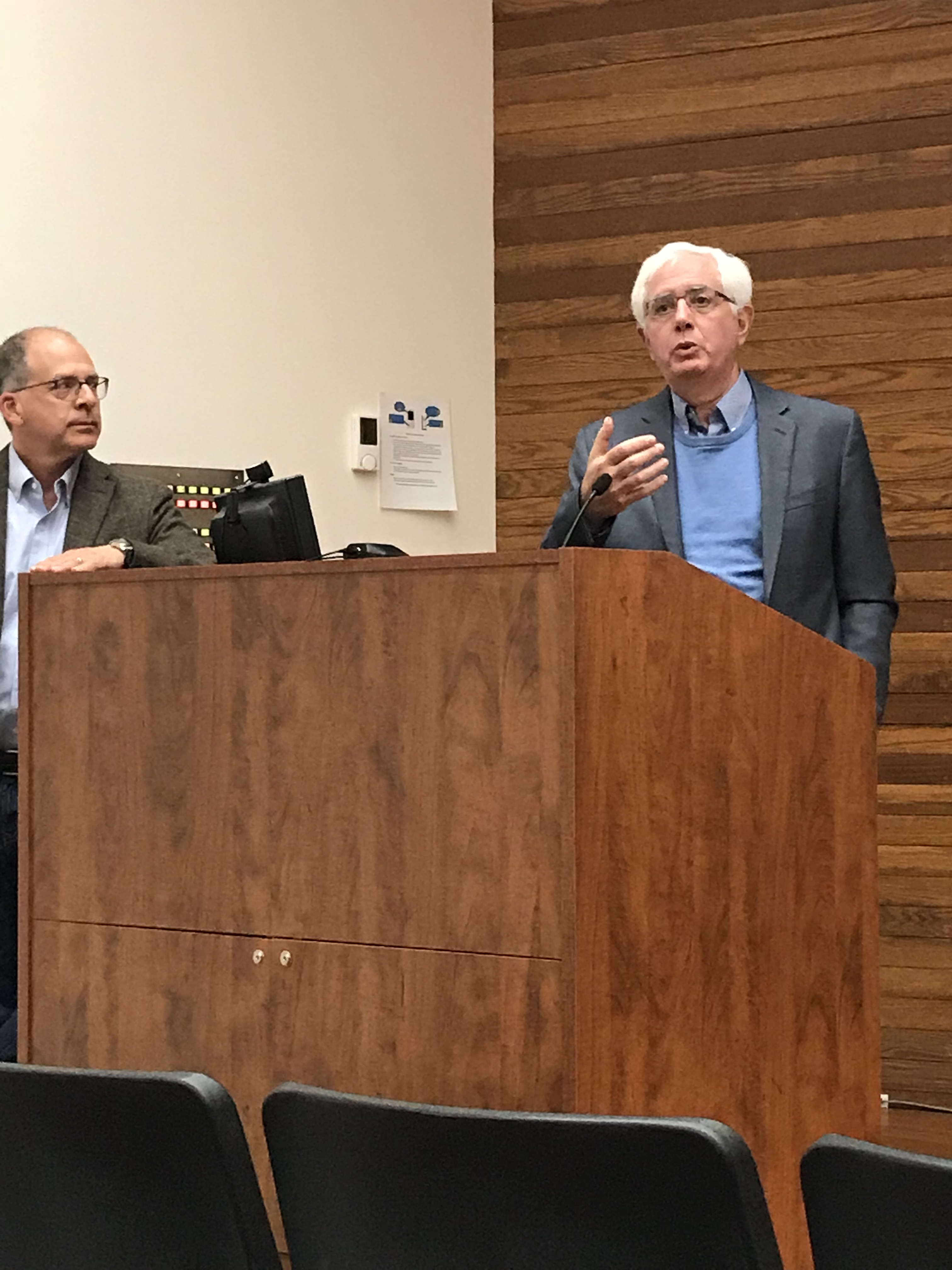
Jack Antel MD, McGill University & Montreal Neurological Institute
May 2018
Dr. Jack Antel’s research program focuses on using human neural and immune cells to understand how their interactions contribute to the development of neurological disease, specifically multiple sclerosis. His studies include how immune cells reach the central nervous system, how the state of activity of the endogenous glial cells contributes to persistence of the immune response, and how the immune mediators induce injury of the target cells, namely oligodendrocytes and neurons and their processes. These studies also aim to understand how the nervous system is able to repair itself from such injury.
- Professor, Neurology and Neurosurgery
- Associate Member, Dept. of Microbiology and Immunology
Invited MS Speakers
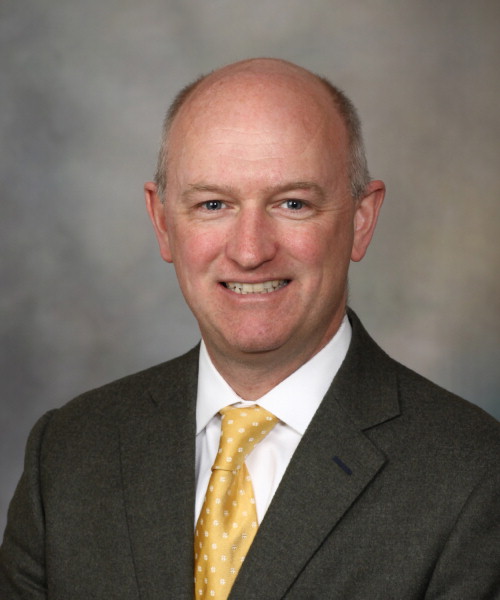
June 2019
Progressive Motor Impairment in MS: Critical Demyelinating Lesions
Dr. Keegan is involved in clinical and translational research in Multiple Sclerosis (MS) and other related inflammatory demyelinating diseases of the central nervous system. In addition, he investigates diseases that mimic MS. The use of plasma exchange (PLEX) for resolution of severe attacks of demyelination, clinical manifestations of MS and treatments for MS are his active areas of research. His work has been published in journals including Lancet, Brain, Neurology, Annals of Neurology and Archives of Neurology.
- Professor, Neurology
- Consultant, Dept. of Neurology
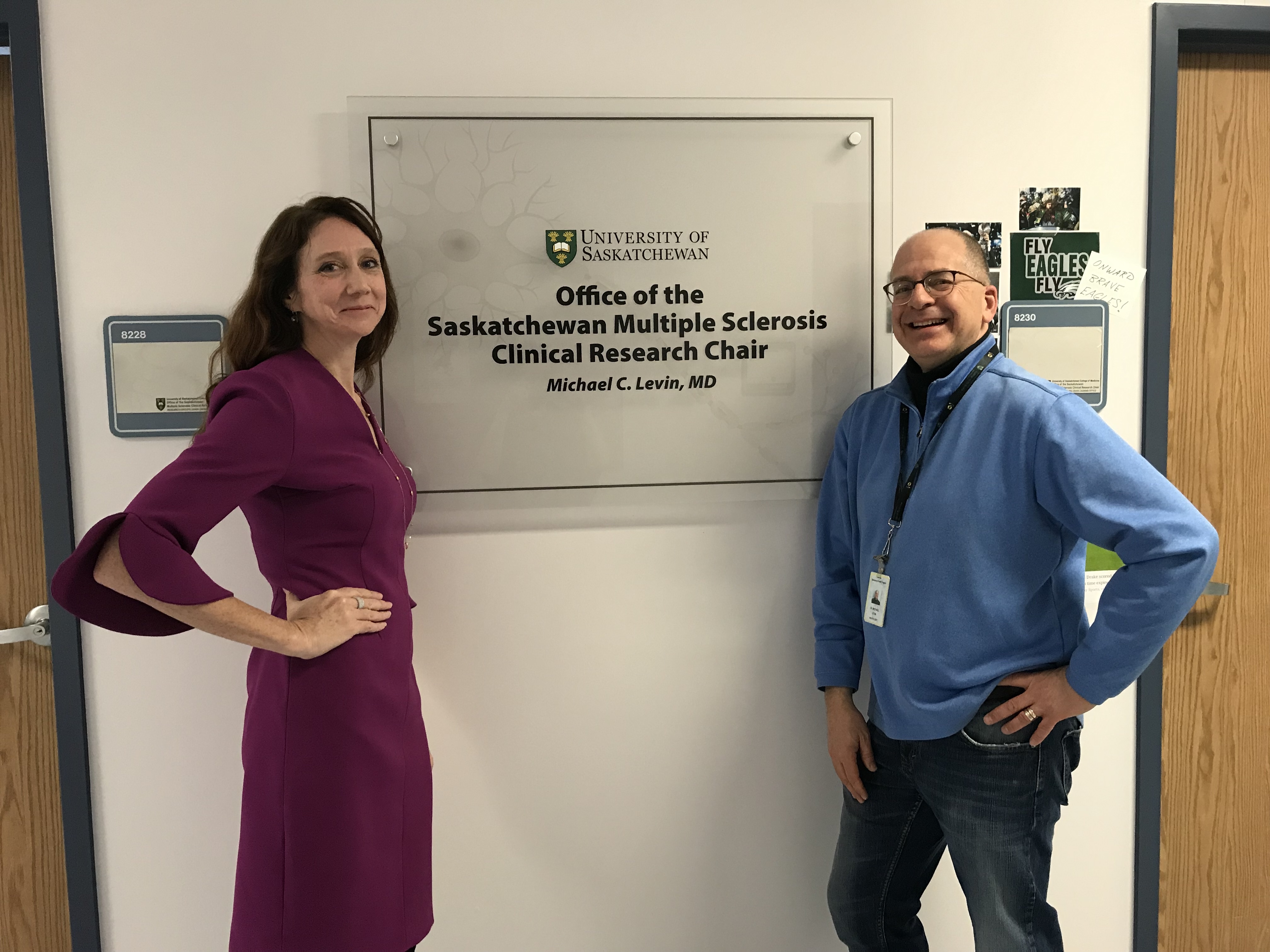
Fiona Costello MD, University of Calgary
January 2019
The Visual System in CNS Inflammatory Disorders: The Eye is the Window to the Soul?
Dr. Fiona Costello is an Associate Professor, affiliated with the Departments of Clinical Neurosciences and Surgery (Ophthalmology), University of Calgary and a Clinician Scientist with the Hotchkiss Brain Institute (HBI). She completed her medical school (1995) and Neurology residency training (2000) at Memorial University of Newfoundland, and then embarked on a clinical fellowship in Neuro-Ophthalmology at the University of Iowa (2000 – 2002). Her fellowship training was supported by an E.A. Baker Scholarship she received from the Canadian National Institute for the Blind. Since 2007, she has run a clinical practice in Calgary as a neuro-ophthalmologist, serving the needs of patients with disorders involving the visual pathways and the central nervous system.
- Associate Professor, Clinical Neurosciences
- Member, Hotchkiss Brain Institute
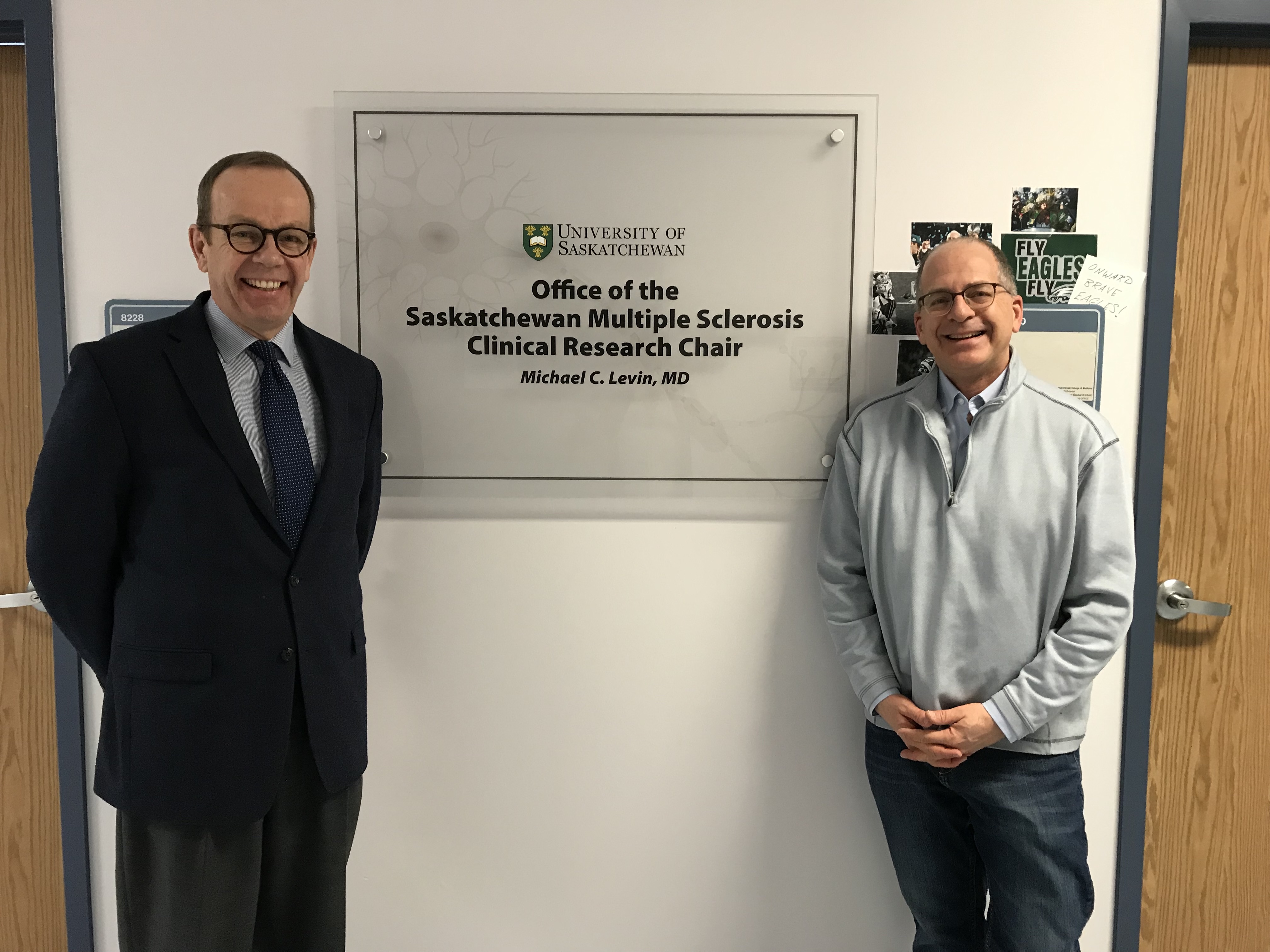
Chris Power MD, University of Alberta
January 2019
Neurological Infections in the 21st Century
Chris Power's research program combines his expertise as a clinician with his laboratory’s research to yield new disease markers and treatments for persons with brain disorders involving neuroinflammation, particularly multiple sclerosis (MS) and HIV-associated neurocognitive disorder (HAND). Neuroinflammation is a key aspect of many neurological diseases that
His research group works at the interface between clinical and laboratory research for which they have developed patient cohorts with associated biobanks of tissue samples and databases that they can investigate using cutting-edge technologies in my laboratory. They have established a “circle of research” that comprises clinical and laboratory research with reciprocal interactions between my Multiple sclerosis (MS) and HIV clinics and his laboratory, which are also infused with new ideas, technologies and trainees during information flow between the laboratory and clinics. Additionally, his group interacts with a broad range of collaborators globally and across Canada.
- Professor, Dept. of Medicine
- Vice-Dean Research, Faculty of Medicine & Dentistry
- Founding Director of the University of Alberta Multiple Sclerosis Centre
- Canada Research Chair, Neurological Infections and Immunity

